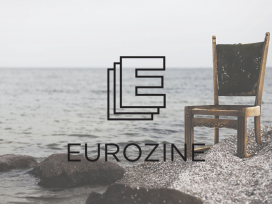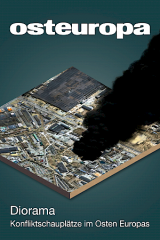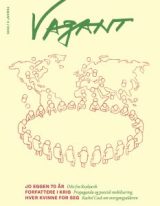Simon Garnett
Senior editor at Eurozine.
Articles

Police violence, mass detentions, internet shutdown, arrest of opposition candidates: the reaction to the latest protests in Moscow has been an overreaction even by the standards of the Russian authorities. It seems that the government has good reason to be afraid of putting its popularity to the test. But is it advised to ask what next, given the sheer weight of resistance to democratization in Russia?

The sight of the US president staring ahead impassively while around him the crowd chanted ‘Send her back’, felt like the crossing of the Rubicon. This was the point when Trump and his Republican supporters finally dropped the mask and revealed their contempt for the values underlying the liberal consensus.

Understanding Fukuyama
Eurozine editorial
Few articles in the recent past can have been vilified so heavily by so many intelligent people than Francis Fukuyama’s ‘The end of history’. Now, thirty years on, the article is worth re-reading. Because, unless one is nostalgic for an orthodox version of dialectical materialism, it is hard to find anything to strongly disagree with. On the contrary.

Unsettling reading
Eurozine editorial
Every so often an article gets under your skin. Reading it, one is both exhilarated and unsettled. It is something that cannot be ‘unread’. Eurozine’s latest editorial introduces the highlights of the past two weeks.

Agonies of pluralism
Germany and the New Right
Germany’s altered party landscape is the culmination of the misfit between political centrism and the national-conservative groundswell catalysed by the refugee wave of 2015–16. Not only does the AfD pose major challenges to the other parties, it throws up uncomfortable questions about the role of the media in the dynamics of polarization.

Ghosts on the waterfront
An interview with Marcus Rediker
In an excerpt from his acclaimed book The Slave Ship: A Human History, historian Marcus Rediker describes the deep-sea sailing ship as linchpin of the emergent transatlantic economic order and instrument of terror for slaves brought from Africa to the Americas. In a subsequent interview, he discusses the role played by European harbour cities in the slave trade and their responsibilities in reckoning with its moral legacy.
Change must start from within
Roma integration: EU rhetoric and institutional reality
By the end of 2011, European member states are expected to have demonstrated their fulfilment of the requirements of the EU Framework Programme for the integration of Roma. But what are the chances of the programme succeeding if structural anti-Roma racism exists within European institutions themselves? Valeriu Nicolae is founder and president of the Policy Centre for Roma and Minorities in Bucharest, an NGO that works directly with young Roma. At a conference in Berlin in November, he talked about the discrepancy between European rhetoric and institutional reality.
Whose rapprochement?
The Belarusian media between Lukashenka and the EU
The continuing repression of the independent media exposes the Belarusian government’s concessions to “European standards” for what they are: window dressing on a regime that has no intention of releasing its stranglehold on society any time soon.
Citizen Victim
The migrant youth, the RAF terrorist, and the German feuilletons
The alarmist reaction from parts of the German media to a recent spate of violent assaults by migrant youths on “native” Germans – talk has been of a cultural clash – bore striking similarities to last year’s controversy over the release from prison of two former members of the Red Army Faction. In both cases, media sympathy for the “victims” of violence fed directly into political campaigns targeting the majority’s sense of embattlement.








